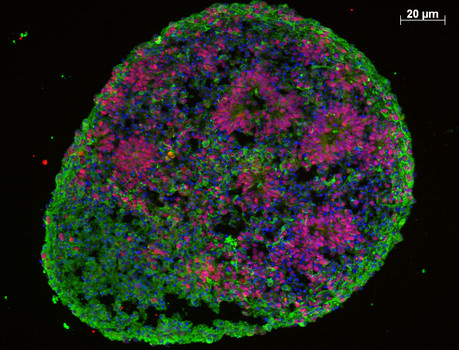Flora Vaccarino, the Harris Professor of Child Psychiatry and Professor or Neurobiology at the Yale School of Medicine, and colleagues are the first to grow miniature brains from the skin cells of people that have autism. The research was designed to observe the early developmental stages of autism.
The researchers took this unusual approach because 80 percent of people that have autism show no genetic predisposition toward the disease. The growth of the brains that are only a few millimeters in diameter allowed the scientists to see chemical and structural changes in the developing brain of an autistic person that cannot be seen in live humans. The researchers hedged their bet for success by using the skin cells of autistic people that have enlarged brains. An enlarged brain is a characteristic of severe autism.
The tiny brains displayed never before seen characteristics of autism that develop during gestation. Most importantly the scientists found a gene network that accounts for the overproduction of inhibitory neurons that is a major cause of the lack of normal response to stimuli in autistic people. The researchers also found a means to reverse this cause by altering a single gene.
The researchers expect to find more information about the underlying causes of autism as the small brains develop over time. The methodology has been proven with this trail and is expected to be applied to other diseases. The researchers describe their method as being the opposite of present research methods and it has produced significant results in a short period of time.








